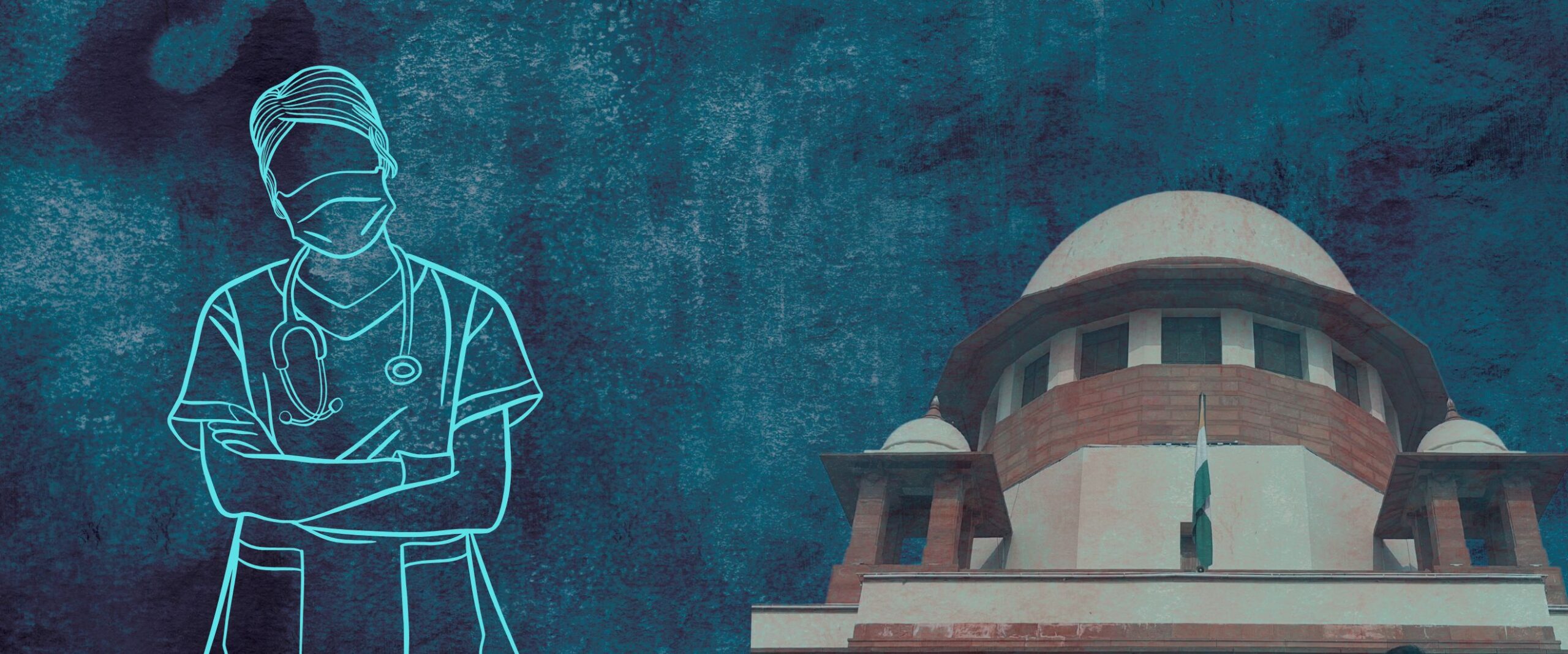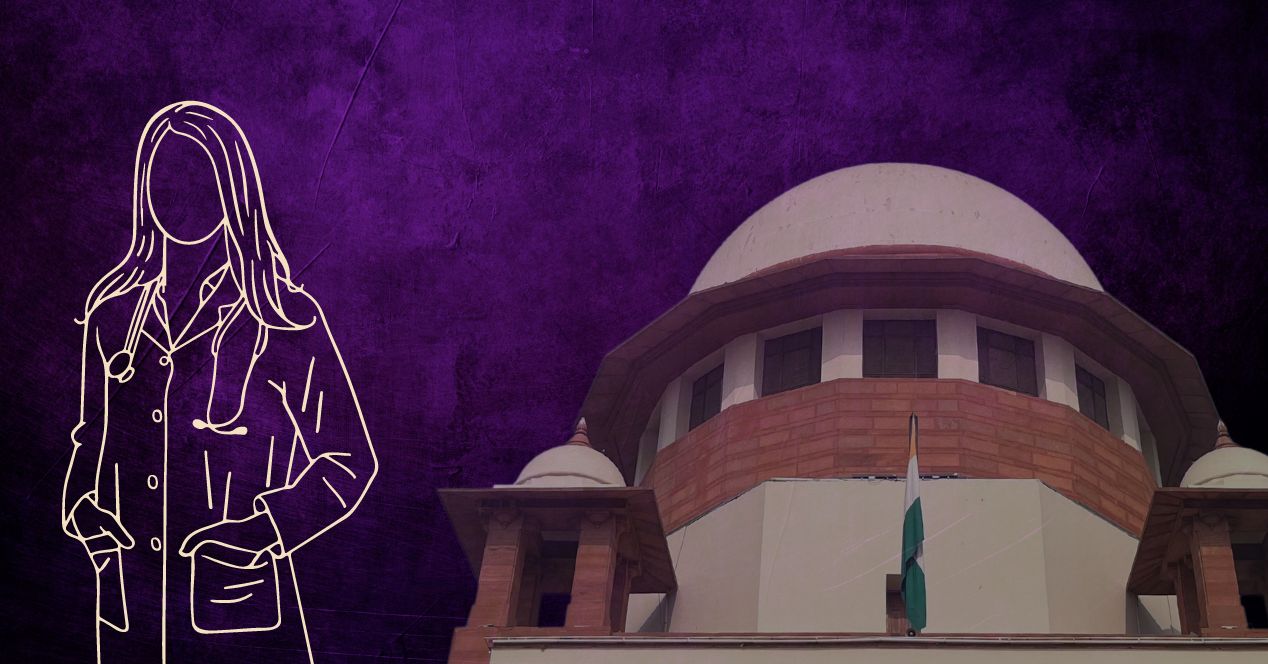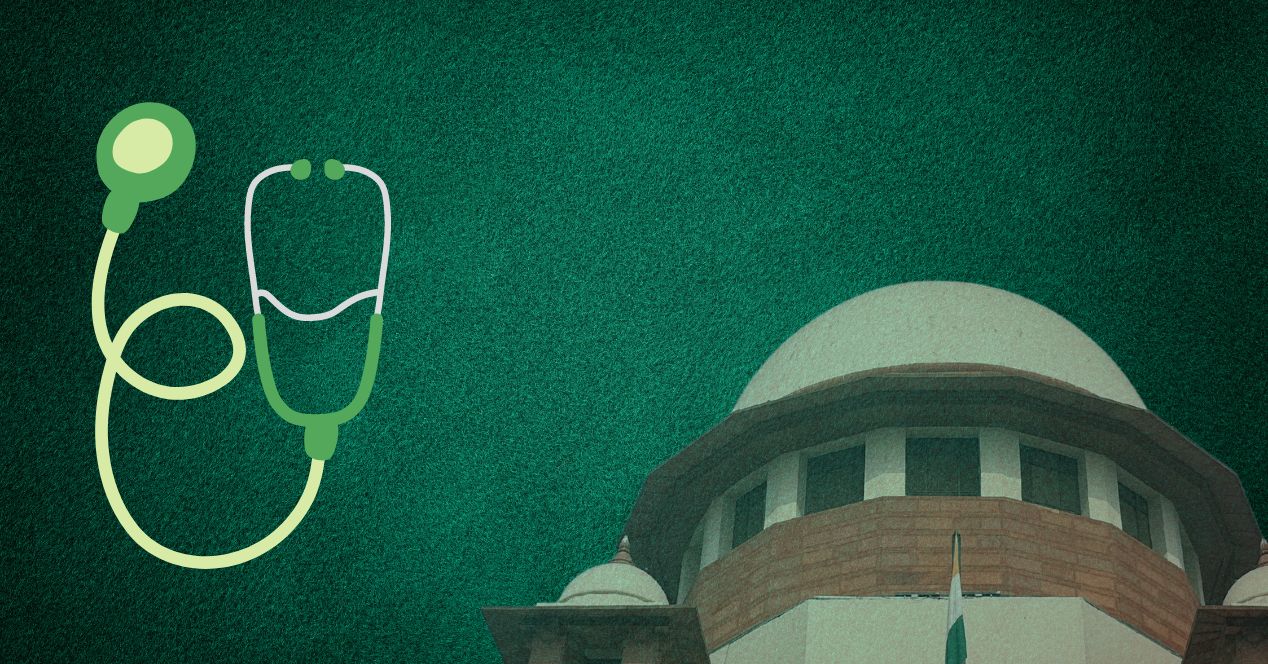Analysis
Kolkata rape and murder case | The NTF must complete its work within a reasonable time, says Supreme Court
The Court also received updates from the West Bengal government and directed it to detail how civic volunteers are hired within three weeks

In Re: Alleged rape and murder incident of a trainee doctor in R.G. Kar Medical College and Hospital, Kolkata and related issues | Day 6
Today, a bench of Chief Justice D.Y. Chandrachud with Justices J.B. Pardiwala and Manoj Misra heard the R.G. Kar rape and murder case for the sixth time. The Court had taken suo moto cognisance of the case in the aftermath of the rape and murder of a woman trainee doctor at the hospital on 9 August 2024. Since then, the top court has been monitoring the safety measures implemented by the state of West Bengal and the Central Bureau of Investigation (CBI)’s investigation of the case.
In the hearing today, the Court reviewed the CBI’s fifth status report and the West Bengal government’s affidavit detailing the progress in implementing additional security measures across 28 government medical colleges and hospitals in the state.
The bench also took account of the progress (or the lack thereof) made by the National Task Force (NTF) set up by the Court on the first day of hearings. The NTF was tasked with formulating a pan-India protocol for the safety of doctors across the country.
Updates from the CBI
The CBI informed the bench that it had filed a chargesheet against Sanjay Roy, the primary accused in the case, on 7 October 2024. Roy is charged with rape (Section 64) and causing death due to rape (Section 66) under the Bharatiya Nyaya Sanhita, 2023.
The CBI also told the Court that the parents of the deceased were frequently updated about the findings of its investigation.
Further, the bench in its Order noted that the CBI was looking into the alleged financial irregularities in the R.G. Kar Hospital and has taken into account inputs from various parties during the course of the investigation.
Updates from the National Task Force
The bench today also got an update on the work and progress undertaken by the NTF. The NTF was set up by the Union government on 21 August, a day after the Supreme Court directed them to do so. During their first meeting on 27 August, they set up four sub-committees to engage with stakeholders and to prepare their recommendations on the following issues:
- Strengthening the infrastructure of medical institutions
- Strengthening security systems in medical institutions
- Revamping working conditions for healthcare professionals and
- Strengthening legal framework across all states.
Solicitor General Tushar Mehta informed the Court that the NTF had received inputs and suggestions from over 7800 medical establishments through a portal set up by the Ministry of Health. The NTF, he said, is going through all suggestions to reach a long-term solution. He further told the bench that the last meeting of the NTF was held over a month ago on 9 September 2024.
Expressing concerns over the slow pace of the NTF, the bench observed that no “substantial development” had taken place between the last meeting and today. It directed the NTF to complete its tasks within a reasonable time and submit an update within three weeks.
Updates from the West Bengal government
Senior Advocate Rakesh Dwivedi submitted that infrastructure and safety measures—new toilets, duty rooms, CCTV cameras and biometric facilities—were nearly complete in the 28 government hospitals. He assured the Court that all remaining work would be completed by 25 October 2025. Further, security measures in the R.G. Kar College and Hospital will be fully implemented by 31 October 2024. Previously, the Court had noted that the state government’s progress was “tardy”.
Senior Advocate Karuna Nundy representing the senior doctors’ association interjected to state that the safety measures were initiated but were in no way implemented to the extent stated by the government. She also informed the Court that per the government’s own documents, the budget allocations for these measures for the year 2024-2025 were only ₹ 1. A representative of the West Bengal government clarified that this was due to the constraints owing to the end of the year. He assured the bench that surplus budgets from different sources were being appropriated to implement the safety measures at hospitals.
Dwivedi also informed the Court that the state had launched an Integrated Hospital Management System (IHMS) for monitoring online discharge, online drug prescriptions etc. The IHMS will also have a real-time bed vacation monitoring system as well. Creating an integrated system was one of the demands of the protesting doctors.
Senior Advocate Kapil Sibal, also appearing for the state, informed the bench that he was placing on record the status report filed by the West Bengal police of the vandalism that occurred at the hospital the night of the incident.
Updates from the doctors
Senior Advocate Indira Jaising informed the bench today that all protesting doctors had now returned to work and resumed regular duties. She further informed the Court that the IHMS was referring patients to ill-equipped hospitals to deal with their situations. An integrated system with good referrals, she said, will ensure that the patients are “satisfied” and do not attack the doctors. The bench directed that issue be looked into and a report be submitted by the next date of hearing.
Upon Nundy’s insistence, the bench also directed the state government to detail the process of hiring and background verification process of the new security personnel deployed by the state. Doctor associations’ had demanded this be done as the person accused of the rape and murder was a civic volunteer who had access to the hospital rooms.
The case will be heard again in three weeks after the Court is back from Diwali vacation.




